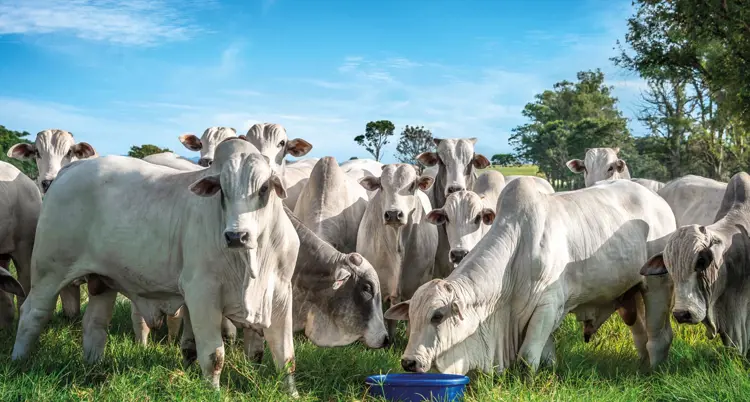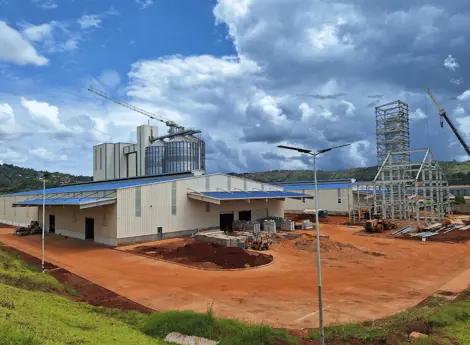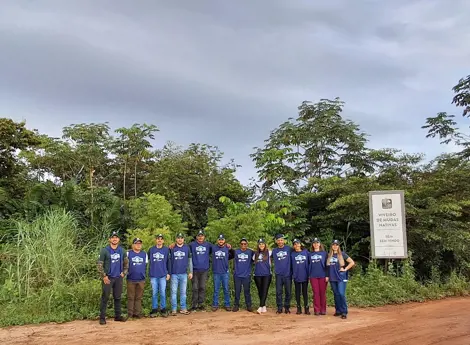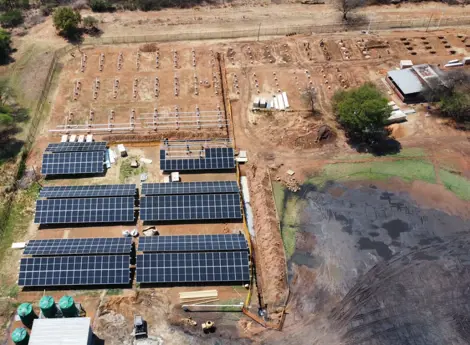
First things first, what’s the origin story of De Heus’ operations in Asia and Brazil?
Fluit: “I should start off by saying that all credits go to Rinus for the group’s first steps in both Asia and Brazil.”
Donkers: “From 2007 to 2008, I was travelling a lot to Vietnam – often with Koen de Heus, who had just taken over the company with his brother Co. I was business developer for the group at the time and mentioned that Vietnam wouldn’t be a bad place to start business.”
Fluit: “Vietnam was the first country where we started as De Heus without first having an export activity through Koudijs. The starting point was the take-over of our first feed mill in 2008. In 2012, we expanded into aquafeed – quite a milestone, because this was a first for De Heus. In terms of other value chain initiatives, we invested in genetic farms and are in the process of setting up several food businesses.”
Donkers: “The idea of expanding into Brazil arose in 2012. Brazil is a huge country and thus has unlimited potential. It is an agricultural superpower that exports all over the world.”
What are some of the main characteristics of your respective markets, and how does this translate to your activities at a local level?
Donkers: “The Brazilian market is characterised by large players who manage the entire chain. As a result, every link in the poultry and pig chain is fully integrated. That’s why we won’t establish other initiatives in our chain, such as hatcheries or slaughterhouses, like we do in Asia. Compared to the other countries where De Heus operates, here in Brazil we have the most extensive production package. We obviously produce pre-mixes and feed, but we also produce mineral supplements for beef cattle to ensure that we can make better use of the available grass by providing good additives alongside.”
Fluit: “In Asia, we realised that if we really want to make a difference in helping independent farmers here, we needed to go beyond high-quality feed and technical support. The main genetic businesses are controlled by large feed companies, which aren’t always willing to supply their day-old chicks to our customers. To fulfil our grand promise to improve the livelihood and income of independent farmers, we needed to equip them with high quality genetics.”
Donkers: “The big difference between our markets is that the large players in Brazil are our customers, while in Asia they are more like competitors.”
“The big difference between our markets is that the large players in Brazil are our customers, while in Asia they are more like competitors.”
What are the main sustainability challenges in your region and how do you turn them into fuel to drive progress?
Fluit: “If you look at Asia, the biggest challenges faced by farmers relate to producing enough safe and healthy food for our growing population whilst reducing the use of antibiotics. Another big issue is the availability of fresh water for the livestock sector. There is a lot of saltwater intrusion in the Mekong delta in Vietnam. Because farmers depend on the Mekong waters to feed their animals, you can imagine this dramatically changes the living conditions of pig and poultry farmers there and affects product quality and farm profits. We support our farmers in making the switch to shrimp farming – for which brackish water is perfect.”
Donkers: “The main challenges faced by Brazilian farmers are the reduction of antibiotics, efficient land use and preserving the rain forest. They have the potential to produce a significant amount of food for the growing world population, including the 4 to 5 billion people in South-East Asia you mention. If farmers can make better use of the raw materials that their livestock converts into animal proteins, they should be able to produce twice as much, with the same amount of land they currently use. That’s where I see the biggest opportunities for De Heus to offer support.
When it comes to legislation on deforestation, Brazil is already the strictest in the world. Wherever anyone plants soy, corn or other crops, 20 percent of each hectare must be afforested or reforested. For farmers closer to the Amazon, the obligations to afforest or reforest increase up to 80 percent of their land. As De Heus, we contribute to conserving the rainforest by sponsoring the Black Jaguar Foundation, whose aim is to plant 1.7 billion native trees to restore the Araguaia Biodiversity Corridor. Moreover, they offer individual farmers knowledge and support to plant trees themselves and we help them to increase productivity in beef production on the remaining part of their land. A clear Win-Win partnership in our opinion.”
If you look at Asia, the biggest challenges faced by farmers relate to producing enough safe and healthy food for our growing population whilst reducing the use of antibiotics. Another big issue is the availability of fresh water for the livestock sector.
You both mention the reduction of antibiotics. In Europe, the preventive use of antibiotics in livestock farming is already banned. There are also strict rules on the curative use of antibiotics in the case of animal diseases. Do you use that existing knowledge and experience to catalyse progress in Brazil and Asia?
Fluit: “Definitely! R&D insights and experiences from other business units is what I feel sets De Heus apart from others. In Asia, our approach to antibiotics reduction is twofold. Firstly, we try to convince farmers there are good alternatives, that are equally as good and cost effective. Sharing data from farms in other countries plays an important role in this.
In addition, we appeal to national legislators to get involved. In Asia, the importance of antibiotics reduction is becoming increasingly apparent, because a big part of the population is building up resistance to certain types of antibiotics. This is one of the main upcoming health care issues in many Asian countries. In the past 3 years, we invited the Minsters of Agriculture of Vietnam and Myanmar to visit the Netherlands and learn about their approach to the reduction of antibiotics throughout society. This is a long-term process that links to the whole healthcare system – the livestock sector can only offer part of the solution. The Dutch figured that out years ago.”
Donkers: “I agree, De Heus can set an example by communicating successes from other parts of the world to our local markets.
While many types of antibiotics have already been banned and preventive antibiotics are no longer used, the use of some antibiotics is still permitted in Brazil. Fortunately, more and more companies are taking the initiative to try and reduce their own use of antibiotics. Some bigger companies have achieved an antibiotics-free chain, while some of the highend supermarkets even stock antibiotics-free products. Among our customers, we are seeing some exciting improvements as well. For example, farmers who started using our piglet feed now use 12 percent less antibiotics.”
How can Asia and Brazil work together in solving global and local challenges?
Fluit: “There is great interdependency between our countries. We cannot feed the population in Asia without Brazil, the largest net exporter of proteins and grains in the world. Conversely, the growth of the Brazilian economy depends a lot on the economic growth in Asia. Brazil on the one hand and Asia on the other. If we make our supply chain in South-East Asia more sustainable, we can help make soy production in Brazil more sustainable too. We can have an enormous impact, because we have companies on both sides of the world.”
Donkers: “We need to underline the importance of Responsible Feeding. We must help each other regionally and globally to set a good example. I am convinced that solutions created in another part of the business can be implemented here as well.”
FEED. Magazine
In this magazine, we share a selection of stories about progress and sustainability from De Heus business units all over the world. We hope that these stories will inspire you







